Halal Tamales
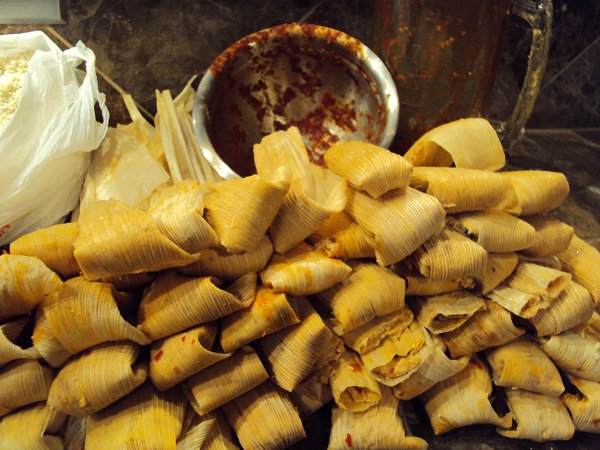
I met a Mexican woman, Mari, from the southern part of Mexico City who now lives in Chicago’s Little Village.
Mari makes the tamales in her kitchen then hits the street to sell them for just $2 each. Needless to say, they are sold out quickly!
On a recent visit to Little Village, Mari offered me tamales made with Mennonite cheese and soft jalapeño peppers. The tamale was wrapped in banana leaves and when opened, brought me back to the memory of my own Abuelita’s Puerto Rican pasteles, similar to tamales wrapped in banana leaves.
Tamales are a traditional Latin American food whose main content is masa (steamed corn dough). They are then filled with meat, cheese and/or chiles. There are hundreds of different ways tamales can be made and home cooks have their own twist on traditional recipes.
Although in Mexico most tamales are wrapped in corn husks, many other parts of Latin America wrap their tamales in plantain (banana) leaves. I was told that since Mari’s tamales are wrapped in banana leaves that they are of the Veracruz (Mexico) style.
Unfortunately for Muslims, most traditional Mexican tamales are made with masa that is mixed with manteca (lard)- a very important word every Muslim should know if he/she wants to eat Latin American food because lard is pork fat.
Although there is a health trend in Latin American cooking moving away from manteca to aceite vegetal (vegetable oil) or aceite de olive (olive oil), it’s better to ask whether or not your frijoles (beans) or huevos (eggs) are fried in them. Even Mexican, Cuban and Puerto Rican sweet breads (pan dulce) and regular pan is often made with manteca, which gives the pan its flaky crust. Be sure to ask. In the case of traditional Mexican tamales, the masa is almost always mixed with manteca for sabor (flavor).
So, how did we avoid the lard and get dhabiha halal chicken into our tamales? A little questioning and prodding into the preparation of tamales was essential. Getting to know Mari was the next most important thing.
Additionally, we’re fortunate in that Chicago’s Little Village neighborhood, although almost all Mexican, has one dhabiha halal chicken store called Pollo Vivo (Live Chicken). That is where we bought our chicken for Mari to make our tamales.
We explained to her that we could not have the tamales prepared in masa with manteca, so we bought corn oil and she agreed to make it with that instead. Mari said it wasn’t such a strange request because when she lived in Mexico city she worked with many Jewish people and they also had similar requests for kosher meats and food prepared without any pork or pork products.
The result was simply wonderful- and we weren’t the only ones to think so. Mari thought the result was less heavy and more healthy than the traditional ones prepared with manteca. Now, all I have to do is learn the process from Mari- then I can share the results with you!
Additional Information/Resources:
Eating Out Halal- How to Decipher Ethnic Ingredients and Determine their Halal Factor
Pollo Vivo
The owners are Muslims who keep chickens, rabbits and ducks in the store for a number of days and give them only halal animal feed. They are not kept cramped up in cages, but often seen having time to waddle around in their specified area. They are then prepared for you in the Islamic manner right there in the store within minutes of your purchase.
The store also sells quail eggs when available and dhabiha halal turkey around Thanksgiving season. is located at 2601 S. Ridgeway at the corner of 26th Street and Ridgeway in Chicago’s Little Village(773) 542-9451.
For more information and an explanation on what dhabiha means, please refer to ehalal.org.
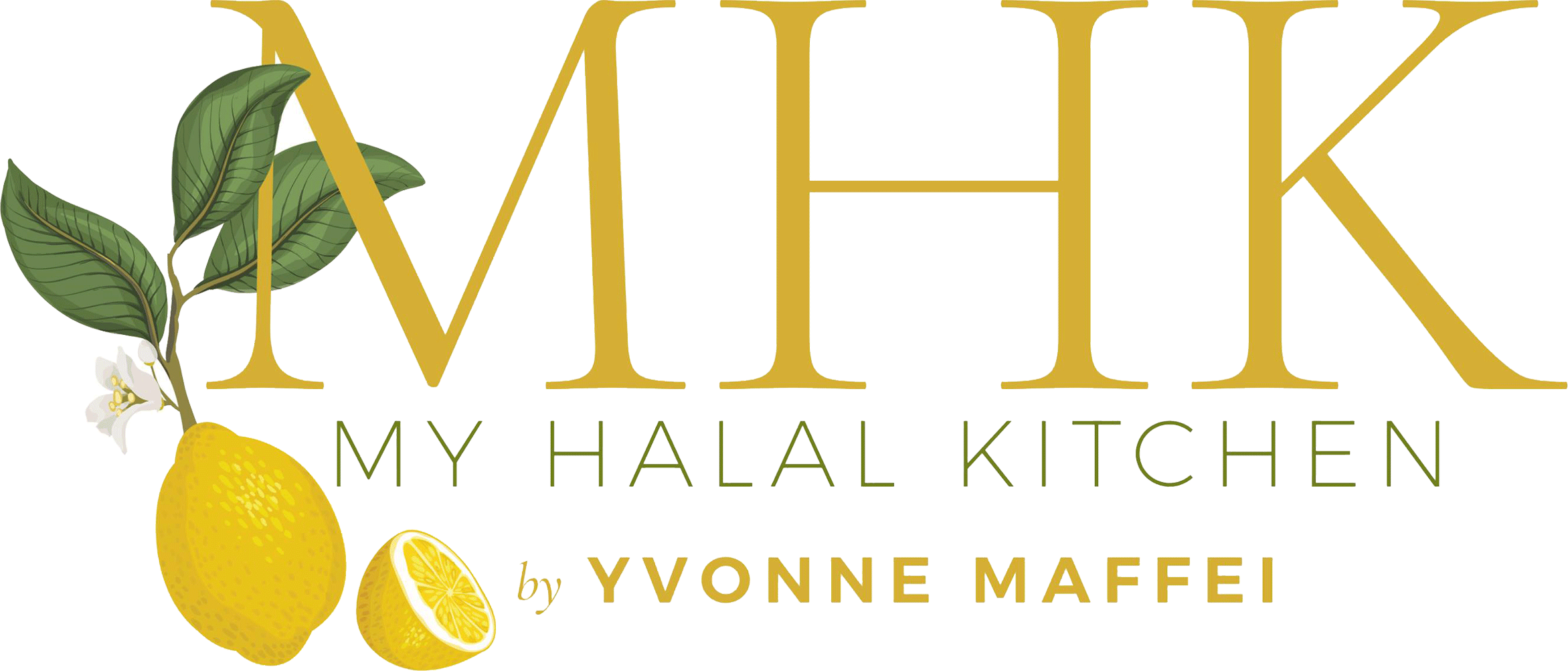


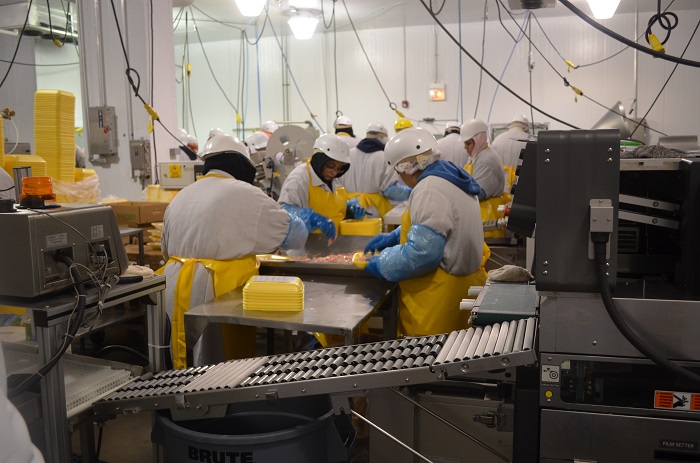

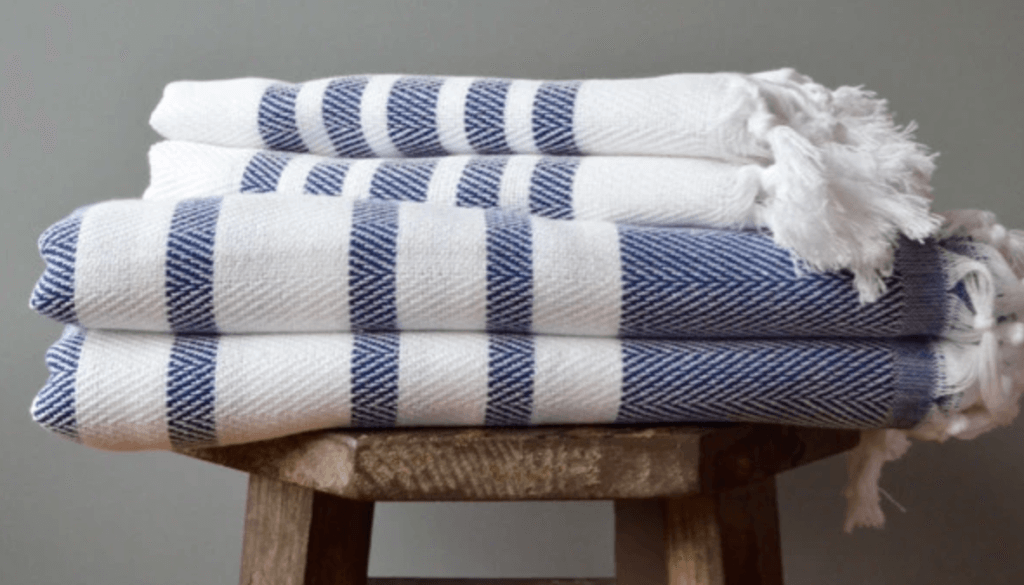

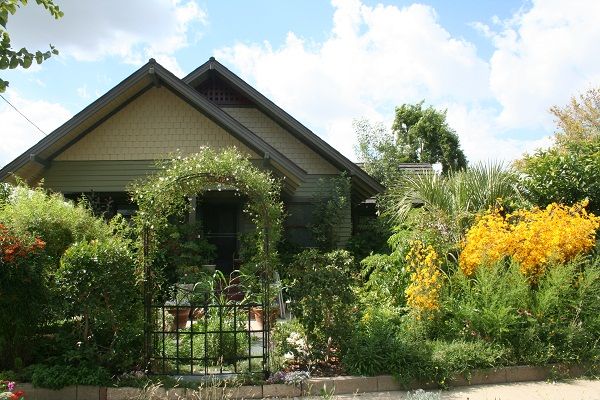


Assalamu’alaikum Dear Sister. I live in the Dallas-Fort Worth metroplex area and I am always interested to find out more about food from other culture. Jazakha Allahu Khairan for your blog. Insha’Allah I hope to read more about your cooking adventures soon 🙂
Wa’alaikum as salaam Sister,
Thank you for your comment, which was very encouraging. I’m curious to know how you found this blog. Keep on coming back for more, please!
Actually I found your blog by accident. I ‘ve been searching the internet for blog by Muslims and happened to stumble upon yours. Insha’Allah I will visit your blog regularly for good info!
can you use Crisco instead or vegetable oil with dry masa
I would not recommend that. I would instead use butter, olive oil or chicken fat, beef fat or lamb fat.
Salaam sister, does Mari have her own stand or place she sells these? I live in Chicagoland area and I’d love to try halal tamales being a Hispanic and interested in Islam.